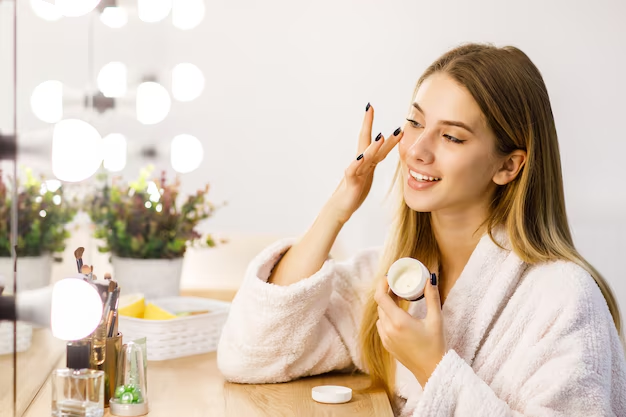The Ultimate Guide to Skin care: Tips for Healthy, Glowing Skin
Having healthy, radiant skin isn’t just about using expensive products—it’s about understanding your skin’s needs and adopting the right routine. Whether you’re a skincare enthusiast or a beginner, this guide will help you build an effective regimen for glowing skin.
1. Know Your Skin Type
Before choosing any products, determine your skin type:
- Oily Skin: Prone to acne and shine. Needs oil-free, mattifying products.
- Dry Skin: Feels tight and flaky. Requires deep hydration and nourishment.
- Combination Skin: Oily in some areas (like the T-zone) and dry in others. Needs a balanced routine.
- Sensitive Skin: Reacts easily to products. Requires gentle, fragrance-free formulations.
- Normal Skin: Well-balanced with minimal issues. Can use a wide range of products.
2. Essential Steps in a Skin care Routine
A basic yet effective skincare routine includes:
a) Cleansing
- Wash your face twice daily with a gentle cleanser suitable for your skin type.
- Avoid harsh soaps that strip natural oils.
b) Exfoliation (2–3 times a week)
- Removes dead skin cells, helping to unclog pores and brighten skin.
- Use chemical exfoliants (AHAs, BHAs) for better results than physical scrubs.
c) Toning
- Helps balance the skin’s pH and preps it for serums and moisturizers.
- Look for alcohol-free formulas with hydrating or soothing ingredients.
d) Serums & Treatments
- For hydration: Hyaluronic acid
- For brightening: Vitamin C
- For acne: Salicylic acid or benzoyl peroxide
- For anti-aging: Retinol
e) Moisturizing
- Essential for all skin types to keep skin hydrated and healthy.
- Choose lightweight, non-comedogenic formulas for oily skin and richer creams for dry skin.
f) Sun Protection
- SPF 30+ is a must daily, even indoors.
- Prevents premature aging, dark spots, and skin cancer.
3. Common Skin care Mistakes to Avoid
- Over-exfoliating, which can damage the skin barrier.
- Sleeping with makeup on—clogs pores and leads to breakouts.
- Not wearing sunscreen, even on cloudy days.
- Using too many active ingredients at once, causing irritation.
4. DIY Skin care vs. Store-Bought Products
- Natural ingredients like honey, aloe vera, and green tea can be great for soothing skin.
- Be cautious with DIY scrubs (like sugar or lemon), as they can be too harsh.
- Store-bought skincare is formulated for safety and effectiveness—always patch test before use.
5. Lifestyle Habits for Healthy Skin
- Stay hydrated—drink at least 8 glasses of water daily.
- Eat a balanced diet rich in antioxidants, vitamins, and omega-3s.
- Get enough sleep to allow skin to repair overnight.
- Manage stress, as it can trigger breakouts and inflammation.
Final Thoughts
Skin care is a journey, and consistency is key. Stick to a routine that works for your skin type and make gradual improvements. Don’t forget that what you put inside your body matters just as much as what you apply externally!

